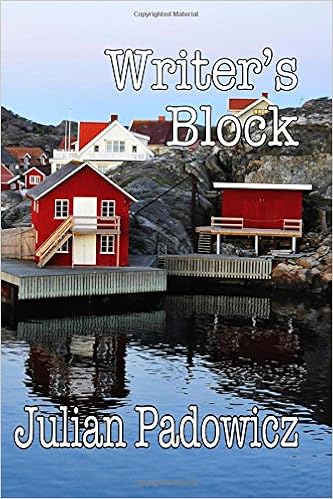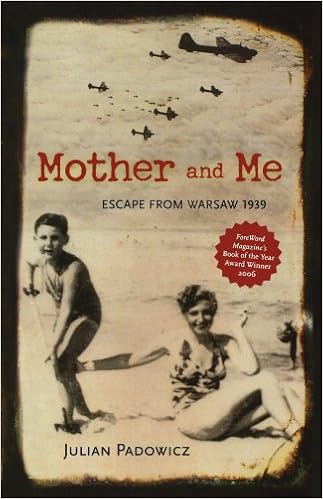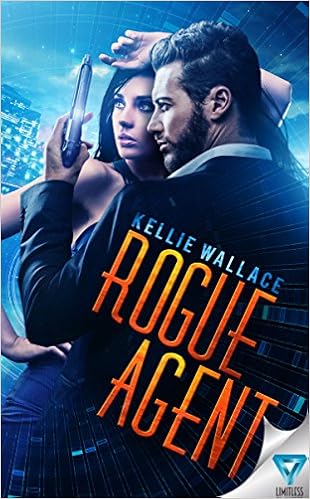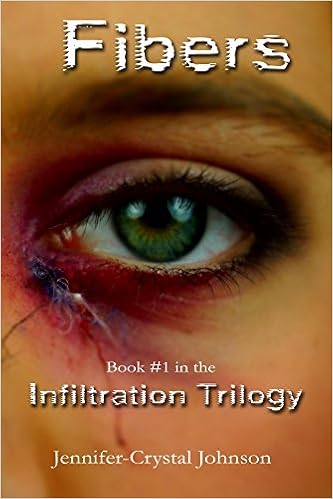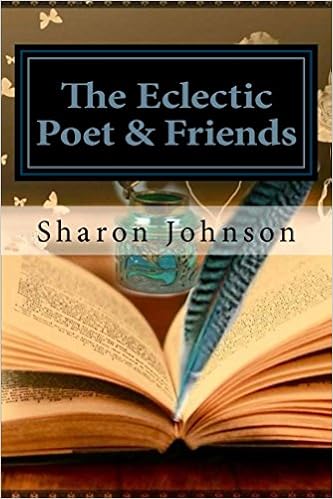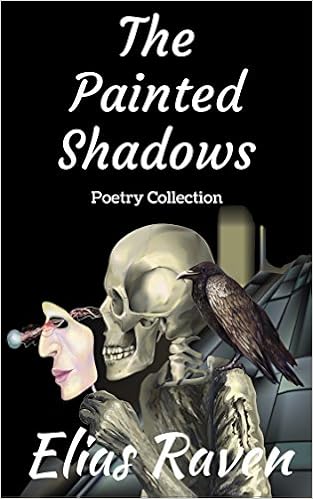Greetings, commies!
Today's guest of honor is
Jennifer-Crystal Johnson, a busy mother of three, indie publisher and author of a an interdimensional conspiracy thriller
Fibers. In light of the recent resurrection of the X-Files, I'm sure her novel will appeal to conspiracy junkies. One of her other passions is domestic violence prevention. Don't hesitate to visit her
Soul Vomit project dedicated to raising funds and awareness. I certainly hope that you will consider promoting this noble cause.
________________________________
MJN: Opening lines are priceless. They set the mood for the
novel. I was tickled by the opening line of Fibers: "Anna Reynolds
didn’t know it yet, but she was caught up in the middle of an interdimensional
conspiracy." I immediately thought of Slaughterhouse Five,
"Billy Pilgrim came unstuck in time."
JCJ: When I read this, I
was tickled! I take that as a huge compliment, and I have to admit that I did
give the opening line a lot of thought as it's the first thing that catches the
reader's attention and compels people to keep reading. I think opening lines
are extremely important, so I often spend a bit of time on making sure that
first line is interesting and sets the tone for the book, just like you said.
Thank you so much! Slaughterhouse Five has been a favorite of mine since
high school, along with a few of Vonnegut's other books =). I guess you could
say that he's influenced my work as an author.
MJN: You were born in Germany but were raised in various
parts of the world. How does that affect your writing style and your
readership? Your fiction is not country-specific, but usually I can tell when
someone's fiction has been influenced by international experiences.
JCJ: It's been a long time
since I've traveled anywhere outside of Washington State, much less lived
outside of this state. Even though I was born in Germany and had a German
citizenship until 2012, I consider the US my home and am much more comfortable
with English than German... although it is fun to have that bilingual
background =).
As far as how the way I grew up has
affected my writing, I feel that learning other languages as well as learning
how to play a musical instrument (I play piano) as a child helps with brain
development and creativity. It also helps with wording... there are certain
rhythmic and musical qualities to language and I hope that my history of music,
multiple languages (I also learned French in school, lol), and poetry
positively impact my writing style. People who have read the book so far seem
to have enjoyed it a lot, so I'm pretty excited to read the reviews once it's
published! =)
My readership is yet undetermined...
that is to say that I don't have enough people who have read my books to do any
analyzing of my readership. I've always been a bit nervous about investing time
and money into a marketing plan, so that will be a first for this book, too...
I'm doing it despite my fears and worries ;).
MJN: Tell us about Broken Publications. I understand it's
your personal company that you founded as a publishing platform for other
independent authors?
JCJ: I actually started
Broken Publications as a way to self-publish without looking self-published, if
that makes sense... in 2010 there was still a bit of a stigma surrounding
self-published authors, and I wanted to make sure that "bad"
reputation stayed as far away from me as possible, especially considering how
OCD I am about grammar and spelling lol. Once I started the company, though, I
started getting inquiries and submissions from people, some friends and some
strangers, and I decided to help others self-publish. I guess this particular
mission kind of fell into my lap, like so many other things tend to do for me
=). I have a tendency to get ideas and just run with them to see what happens,
and with Broken Publications it was the same.
The other part of why I started
Broken is because there are so many vanity publishers out there who tend to rob
authors blind in pursuit of their dreams, taking advantage of people who have a
personal goal. Personally, I never fell for it because one of my favorite
things to do is research and learn, so from the very beginning I did my best to
find out what I was getting myself into... although PublishAmerica, the
publisher of my first novella (as discussed in the next question) when I was
about 20, happened to be on the "Writer Beware" list, too. The
experience with that publisher taught me more about publishing and what I
didn't want, so I used those lessons to help me come up with Broken's royalty
split, contract length, and so on. I also wanted to make sure I kept everything
as simple as possible because legal jargon makes me - and I'm sure many other
people - crazy! So the terms are very simple... no up-front charge for services
(so essentially I work for free at first, which is challenging at times, but I
believe necessary to not make my authors feel like they're getting screwed
over), net royalties (the actual revenue after Amazon/CreateSpace takes their
share) are split 40 (author)/60 (publisher), contracts last for 10 years, there
is a buy-out option for roughly $500 or less, depending on how many copies of
the book have been sold, and movie rights the publisher gets 10% while the
author keeps the majority of it. I do also have a multiple book contract for
the authors who commit to two to four books at once, and the movie rights split
and royalties are a little different at 50/50 royalties and a higher movie
rights percentage for the publisher.
The whole point was to make it a
win-win for the author and publisher, and I'm more than willing to put
in the work for a number of years until we see one or more bestsellers; whether
that's one of my books or not doesn't matter. However, what will happen once
books start taking off is that I'll add a book marketer and a book marketing
budget to each book; nothing major, of course, because it has to be sustainable
for me, but a lot of authors aren't marketers, so I want to help their books as
much as possible.
Haha, I love talking business, can
you tell? It's the longest answer yet!
Outside of Broken, I also provide
freelance services to indie authors and business owners who want to position
themselves as experts by publishing a book. Obviously that means the books have
to be professional; so I do everything. In this case, I charge for services but
not royalties. Editing is first (along with feedback as needed; I generally do
three passes), formatting for print, book cover design, formatting for the
Kindle, and consulting during the process so that my clients know how to do
what they need to do as far as creating their accounts, filling out tax and
financial information, and so on. I have done this so often that I started
making videos about it so that authors who want to learn how to self-publish
can easily learn how to do each step of the process. I plan to make an actual
class about it, but the individual tutorials are free and can be seen on
YouTube or on one of my websites, www.NoBullSelfPublishing.com. I know,
shameless plug... but it's all to share knowledge and help authors =).
MJN: The protagonist of your novel The Outside Girl is named
Ophelia. Was that a deliberate allusion to a famous Shakespearean heroine? I
just keep thinking of the famous non-fiction book Reviving Ophelia that
discusses the crisis of modern girlhood.
JCJ: It was accidental at
the time, but it was one of those things that just kind of popped into my head
mysteriously, so I trusted it =). I realized a few months later how perfect it
was and was happy that I trusted my instincts. The book itself was originally
inspired by a dream I'd had, which is true for the majority of my fictional
work. Because dreams come from the subconscious mind, I personally feel like
they have the potential to make a deeper impact for others. The human mind is
an amazing and powerful thing, and the subconscious often knows things that the
conscious mind can't... so when I have dreams that would make great stories, I
always write them down and make something of them, simply because I know how
amazing the mind is and I don't want to miss any opportunities it offers me,
especially on accident =). I hope that makes sense... and doesn't sound too
"woo-woo" lol! I've seen a lot of connections and strange, crazy
things in my life, so my perception of things is sort of on a "big
picture" basis.
MJN: I commend the mission behind Soul Vomit, which is to
promote domestic violence awareness. It's too broad and serious a topic to
cover it in a couple of paragraphs. I just have one question for you. Do you
believe that men and women should be educated on this subject separately or
together? I'm asking because very often there are gender components involved to
the victim/aggressor relationship. Although, it's not always the woman who's
the victim.
JCJ: Thank you so much!
Soul Vomit, like so many of my projects, is still a work in progress but I want
to keep it going for years, as long as I can come up with individual themes. I
think your question is excellent, and although the broad answer would be that everyone
needs to be educated about it, the types of abuse typically perpetrated
tend to be different based on gender. For example, men tend to be more
physically violent and sexually abusive while the emotional and mental abuse is
secondary. However, when it comes to women being abusive, they tend to do it
more emotionally; manipulation tactics such as withholding sex or threatening
suicide being examples (this is not to say that all suicide threats are
manipulation or that men don't use that tactic in DV situations... there are
certain distinctions to keep in mind and if someone is truly depressed and
suicidal, it should be taken seriously). Each situation has its own nuances and
red flags, but women tend to not be accused of abuse as often because when most
people hear the word "abuse," they think black eyes and broken bones
(also, men generally don't feel comfortable with the stigma of being a
"victim" of abuse because it makes them feel like lesser men, when
the truth is that they should feel stronger than ever because they took a stand
against emotional terrorism). This is not always the case, and because there's
no physical violence, it becomes really difficult for police or the courts to
get involved. There's no evidence except for in the victim's mind, which often
presents as conditioned behavioral reactions, post-traumatic stress or
flashbacks, anxiety, depression, alcoholism, drug abuse, and so on. (No, I am
not a psychologist, but based on personal experience and a ton of research,
this is some of what I've learned =).) When kids witness abuse against one of
their parents, the way it presents is completely different from how it is with
adults (even if they're just babies when they experience or see the abuse), and
unfortunately, the effects on your emotions often last a lifetime and have
serious consequences. Bed wetting is one example, as well as overcompensation
through being an over-achiever, which sounds like it isn't so bad, but can lead
to early anxiety and stress due to the pressure of always doing well in school.
Stress, anxiety, and depression has been linked to heart disease, so you can
imagine how many consequences can come from abuse. It's tragic.
Personally, I believe that it should
be a priority for judges, lawyers, and police to be educated in-depth about
abuse and domestic violence. It's often an "invisible" problem, or
people who are abusive aren't called abusive but "toxic." On top of
that, it's nearly impossible for the victim to talk to their abuser reasonably
because of fear or because the abuser simply won't listen to the victim; think
about it... if the abuser had any respect at all for their victim, they
wouldn't be abusive. This lack of respect translates into a lack of listening,
taking them seriously, or being willing to work on the relationship at all.
Everyone has known at least one "toxic" person; someone who thinks
they're always right no matter what, who won't listen, and oftentimes who won't
even listen if irrefutable evidence is presented. It's ridiculous! The
extremity of these people varies, but no matter who you are, if you treat the
people you love like crap, there's something wrong with you. Just saying.
I think it's most important for
people to be aware that abuse isn't always physical. I've heard a number of people
tell me or mention that emotional scars are much worse than physical scars
because it takes a long time to heal; I can attest to this and tell you that it
takes a lot of conscious effort to overcome some of these emotional scars. For
example, when I left my ex, I had a severe fear of guns, even though my family
has always been supportive of gun ownership and safety. Once you're staring
down the barrel of a .45 (song reference, Shinedown, haha - trying to keep this
a little lighter), things tend to change for you. I was pregnant with my
younger daughter and thought I was going to lose my life via close-range
gunshot to the face. Because of that experience, I spent about two years
freaking out with anxiety and heart palpitations any time I was around guns,
and the way I chose to combat this was through being around guns. I went
shooting with a friend I trusted after I realized what my problem was (I was
working as a pizza delivery driver and happened to deliver to Ft. Lewis, and
there were a few times when I'd deliver to the barracks on post and they'd be
in the middle of some training exercise and all the soldiers were armed...
needless to say, I was freaking out!). Now, I can again be around guns without
losing my mind or hyperventilating... it had been to the point that even toy
guns made me react that way, so I knew I had to solve my problem somehow.
Exposure therapy seemed to do it for me, but I did it without a therapist.
That being said, not every victim
has my background or knows how to handle this kind of thing in a way that will
work for them. Not everyone understands or has an interest in psychology,
either. There are a lot of people who live with PTSD their entire lives, never
able to fully heal. And, believe it or not, victims of domestic violence can
even turn into abusers themselves, which is really sad. That's why they say to
break the cycle, and the first step toward doing that for every individual is
to be educated. They say the first step in solving a problem is to be aware
that there is one; it's true. That's what Soul Vomit is all about... raising
awareness and opening up dialog about the topic. Not everyone is comfortable
talking about their own personal past, either, for fear of judgment or just
being a private person. I'm not. And it makes people uncomfortable sometimes,
especially when it comes to the topic of spousal rape. But if someone doesn't
talk about it, the problem will never be solved. So... I'm talking about it =).
I know this answer wasn't very short
or simple, but I hope this helped.... DV is such a huge topic! I almost want to
do some kind of video series on it for my YouTube channel and the SV website.
Idea again. Maybe I will =). If anyone wants to learn more about the Soul Vomit
anthology, please go to www.SoulVomit.com. The current theme is Domestic
Violence Reversed, which focuses on female (or "less likely")
abusers and emotional abuse; the invisible kind. Submissions are open =).
With that, thank you so much for interviewing me... your questions were
excellent! I know I tend to go into quite a bit of detail, but I certainly hope
that your readers had the opportunity to learn through this blog post. I love
sharing! I also hope that everyone enjoys my book, Fibers. I'll be
working on the second book, Numbers, this year. Hopefully everyone loves
it and I also hope that the series raises awareness about Morgellons disease,
which is an actual condition. It would be amazing if a cure could be found for
the real life sufferers of Morgellons, so here's hoping that my book series
helps to make that happen.
